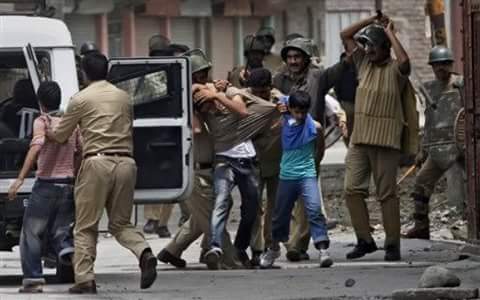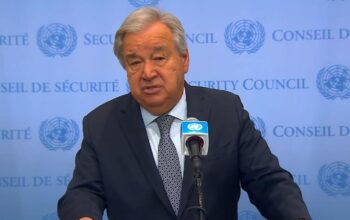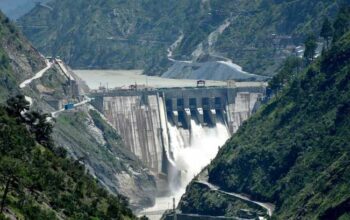By Monitoring Desk
After an attack in occupied Kashmir killed 26 people last week, Kashmiri Muslims across India are confronting a surge of harassment and violence — a painful illustration of the deep-seated mistrust and divisions that continue to plague the region.
For Shabir Ahmad Dar, a pashmina shawl seller in this northern hill town for over two decades, the backlash became a personal nightmare.
On Sunday, Dar and a colleague were assaulted by members of a Hindu right-wing group enraged by the killings in the disputed region, which India attributes to Pakistan — a claim Islamabad rejects.
Video evidence shows the attackers beating Dar, shouting insults, and trashing his stall along a busy Mussoorie boulevard, a tourist haven in India’s Uttarakhand state.
The shawls—intricately embroidered with traditional Kashmiri patterns, featherweight scarves prized by customers as symbols of luxury—lay scattered across the ransacked stall, a livelihood worth thousands of dollars abandoned in fear.
“They blamed us for the attack, told us to leave and never return,” Dar, a resident of occupied Kashmir who has been selling pashmina shawls for more than 20 years, told the BBC. His voice heavy with fear and exhaustion.
He described the shawls as “a metaphor for home,” their designs a thread to his Kashmiri roots. Now, he said, “we are too scared to go back.”
The assault followed the deadliest attack on civilians in Kashmir in years, striking the tourist hub of Pahalgam, sparking nationwide fury in India and political demands for retaliation.
Since then, reports of violence against Kashmiri Muslim vendors and students have multiplied, with videos of campus chases and street beatings spreading online.
Police arrested three suspects Wednesday in Dar’s case but freed them hours later after they paid a fine and apologized. By then, Dar and dozens of other Kashmiri shawl sellers—longtime residents of Mussoorie—had fled, their sense of safety shattered.
The violence in Mussoorie reflects a broader backlash. Since then, there have been more than a dozen reports of Kashmiri vendors and students in Indian cities facing harassment, vilification and threats from right-wing groups – but also from their own classmates, customers and neighbours. Videos showing students being chased out of campus and beaten up on the streets have been cascading online.
In Punjab, Ummat Shabir, a nursing student, was branded a “terrorist who should be thrown out” by neighbors.
The same day, my classmate was forced out of a taxi by her driver after he found out she was a Kashmiri,” she told BBC. “It took us three days to travel back to Kashmir but we had no option. We had to go.” Shabir is back in her hometown but for many others, even home does not feel safe anymore.
Shafi Subhan, a shawl seller from Kashmir’s Kupwara district, felt the sting of betrayal after 20 years in Mussoorie. He had faced no threats even after the 2019 Pulwama attack that killed 40 paramilitary troopers.
“People were always kind to us, they wore our garments with so much joy,” Subhan told BBC. “But on that day when our colleagues were attacked, no one came to help. The public just stood and watched. It hurt them physically – but emotionally, a lot more.”
In occupied Kashmir, authorities have responded with force. Security forces, pursuing the attackers, have detained thousands, closed over 50 tourist sites, sent in more troops, and razed homes of suspected militants’ families—tactics critics label “collective punishment.”
Chief Minister Omar Abdullah has vowed justice “without mercy” for the guilty but warned against harming the innocent and “don’t let innocent people become collateral damage”.
Former chief minister Mehbooba Mufti agreed, pressing for a distinction “between terrorists and civilians.”
The measures have deepened fear and anger. Whenever tensions escalate, we are the first ones to bear the brunt of it. But we are still treated as suspects and expected to put our lives on hold,” an anonymous student told the BBC.
For Mohammad Shafi Dar, a daily wage worker in Shopian, the loss was absolute. Last week, security forces demolished his home.
“We lost everything,” he told the BBC, sitting with his family amid the debris. “We don’t even have utensils to cook food.” His 20-year-old son, a college student missing since last October. His family has no idea where their son is, whether he joined militancy, or is even dead or alive.
He says His parents say the college student left home last October and never returned. They haven’t spoken since.
“Yet, we have been punished for his alleged crimes. Why?”
Back home in Kashmir, peace has long been fragile. Both India and Pakistan claim the territory in full but administer separate parts, and an armed insurgency has simmered in the Indian-administered region for more than three decades, claiming thousands of lives.
Caught in between, are civilians who say they feel stuck in an endless limbo that feels especially suffocating, whenever ties between India and Pakistan come under strain.
Many allege that in the past, military confrontations between the nations have been followed by waves of harassment and violence against Kashmiris, along with a significant security and communication clampdown in the region.
“The needle of suspicion is always on locals, even as militancy has declined in the last one-and-a-half decades,” says Anuradha Bhasin, the managing editor of the Kashmir Times newspapers, told the BBC. “They always have to prove their innocence.” (Courtesy BBC)
Copyright © 2021 Independent Pakistan | All rights reserved




